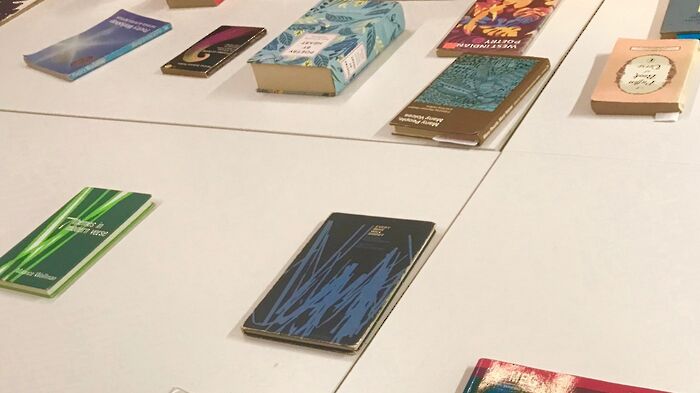A literary tour of Russia: an introduction
In her first column of the term Beth Bhargava introduces us to the rich world of Russian literature

It was mid-November when I last hauled myself out of the Cam. Dripping wet, frozen, and with the river’s reeds tangled with my hair, I could feel myself shaking as I dried off and tried to force my numb body into the three jumpers I had left by the bank. Then, unwilling to wait until I had finished the long walk back to my accommodation, I began to read. The book which so absorbed my attention that I was willing to pursue it with numb fingers was Angela Carter’s Nights at the Circus.The choice of novel was no coincidence.
“The English cultural imagination has long invested Russia with a sense of mystery and even magic.”
Most of my recent vacations have been spent within Cambridge, and the end of each term follows an invariable routine. First, the rooms around me empty. Then, there is a pause: a time of total isolation and lack of communication, as my friends go home to rest. Just as I finish the last of the free food that those leaving dump in the kitchen, however, I’m confronted with a sudden blur of images. Pictures of elegant capitals, mountains, and the occasional alpaca waltz across my screen. I miserably munch on Room 132’s digestives, as Facebook tells me that they’re now somewhere on the Spanish coast. Over time, this experience began to wear me down. It seemed to me that my friends were gaining a level of knowledge and cultural understanding which was entirely closed to me. Selfishly, too, I began to worry about what would happen when they came back. I felt that discussions about the holidays would be horribly one-sided, and that I would reveal myself to be ignorant and dull.
It was in this context that I once more began to read novels. I had all but stopped reading fiction in my first term at university, due to the demands of my degree. But the holidays gave me a chance to rediscover my love of literature, and my sense of the great privilege which the ability and leisure to read represents. Returning to one of my oldest passions, Russian literature, I sat late into the night reading the works of Platonov, Shalamov, Rybakov and Akhmatova. I began to realise that I, too, was travelling (though in a manner very different from my friends). My reading transported me over the vast expanses of the world’s largest country, whilst also leading me down through narrow alleys and private courtyards. To draw on the imagery of Andrei Bely, I was the favoured bearer of a “shadow passport”, and had access to realms closed to the mere physical tourist with their paper visa.
I am by no means the first Englishwoman to trace this path. The English cultural imagination has long invested Russia with a sense of mystery and even magic. Its sheer unknowable immensity, and distance from home, has made this an appealing space for the fantasies of English authors, attracting generations of writers to take imagined journeys across a fictionalised land. Mary Shelley’s Frankenstein, written in 1818, opens in St. Petersburg (the city is calmly described as “far north of London”, a description that might be more aptly applied to Berwick). Petersburg, though seemingly strange and foreign to the persona, fails to dazzle them. Busy and Europeanised, it excites merely as “a foretaste of those icy climes” – the peripheries of the Russian Empire – towards which he hopes to sail. To those with the bravery to traverse it, it seems, this land holds out the promise of unequalled “beauty and delight”. The persona’s rhetorical question “what may not be expected in a country of eternal light?” (a reference to the long summer days of the extreme North) is in fact answered in the remainder of the book, in which horrors are discovered to exist alongside wonders (and often revealed as one and the same). It is a question which could easily serve as an epigraph for Nights at the Circus, in which English audiences are again carried from London to Petersburg to Siberia. With every step of this journey, the fantastical becomes more dominant, and the “real” collapses under the burden of the extraordinary.
It thus seems that Russia has for centuries offered its democratic “shadow passports” to those in need. Generations of female writers, constrained by the physical and psychological barriers imposed upon them, have used this country as an escapist playground. In their stories of travel, it represents the possible in a world of restriction. Why should it not – in some form – continue to do so today? The Russian literary tradition is one of near unrivalled power and beauty. The modern reader, transported across this country by the pen, can still be confronted by both wonder and horror. If you’re interested, I can give you a ticket.
 Comment / Cambridge’s tourism risks commodifying students18 April 2025
Comment / Cambridge’s tourism risks commodifying students18 April 2025 News / Cambridge researchers build tool to predict cancer treatment success19 April 2025
News / Cambridge researchers build tool to predict cancer treatment success19 April 2025 News / Varsity ChatGPT survey17 April 2025
News / Varsity ChatGPT survey17 April 2025 News / Greenwich House occupiers miss deadline to respond to University legal action15 April 2025
News / Greenwich House occupiers miss deadline to respond to University legal action15 April 2025 News / Cambridge researchers find ‘strongest evidence yet’ of life on distant exoplanet18 April 2025
News / Cambridge researchers find ‘strongest evidence yet’ of life on distant exoplanet18 April 2025






